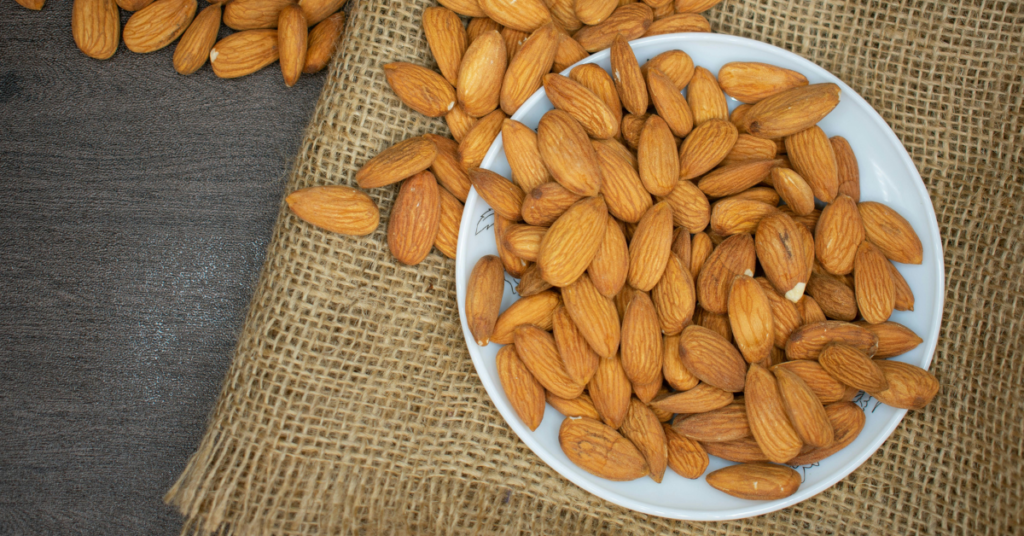Wrestlers require a diet that not only fuels intense training sessions but also helps maintain their body weight and muscle mass. The foods wrestlers eat play a crucial role in their performance, recovery, and overall health. From lean proteins to complex carbohydrates, their meals are carefully selected to meet the demanding needs of the sport. In this article, we’ll dive into the top foods wrestlers rely on to stay in peak condition, revealing how these nutrient-packed choices contribute to their strength, endurance, and weight management.

1. Chicken Breast: A Nutritional Powerhouse for Weight Gain and Muscle Building
Nutritional Profile
- High in Protein: Chicken breast is one of the best sources of lean protein, providing about 31 grams of protein per 100 grams. Protein is crucial for muscle repair and growth, making it an essential part of a diet aimed at weight gain.
- Low in Fat: With only about 3.6 grams of fat per 100 grams, chicken breast is low in unhealthy fats, helping to increase muscle mass without adding unnecessary body fat. The minimal fat content also means it’s lower in calories, making it ideal for those who need to control their fat intake while still gaining muscle.
- Rich in Vitamins and Minerals: Chicken breast is also a good source of essential vitamins and minerals, including B vitamins (especially niacin and B6), phosphorus, and selenium. These nutrients support energy production, immune function, and overall health, which is vital for anyone looking to increase their body weight and muscle mass.

Health Benefits
- Supports Muscle Growth: The high protein content in chicken breast supports muscle protein synthesis, which is the process by which muscles repair and grow after exercise. This makes chicken breast a staple food for athletes, bodybuilders, and anyone trying to gain lean muscle mass.
- Promotes Satiety: Protein is more satiating than carbohydrates or fats, meaning it helps you feel full longer. This is beneficial for those who struggle to consume enough calories to gain weight, as it can help regulate appetite and ensure consistent nutrient intake throughout the day.
- Low in Calories: For those looking to gain weight in a controlled manner, the low-calorie content of chicken breast means you can consume more of it without worrying about gaining excessive fat. It provides the essential nutrients needed for muscle building without overloading calories.
How to Incorporate Chicken Breast into Your Diet
- Grilled Chicken Breast: Grilling chicken breast is one of the healthiest ways to prepare it. Marinate the chicken in olive oil, lemon juice, garlic, and herbs, then grill it for a flavorful and protein-rich meal. Pair it with a side of whole grains like brown rice or quinoa and vegetables for a balanced plate.
- Baked Chicken Breast: Baking is another healthy cooking method that helps retain the chicken’s moisture and nutrients. Season the chicken breast with spices, herbs, and a bit of olive oil, then bake it in the oven until cooked through. Serve it with roasted sweet potatoes and a green salad for a nutritious meal.
- Chicken Stir-Fry: Stir-frying chicken breast with a variety of colorful vegetables provides a quick, nutrient-dense meal. Use healthy oils like olive or avocado oil and add in whole grains like brown rice or whole wheat noodles for added carbohydrates.
- Chicken Salad: For a lighter meal, combine diced chicken breast with leafy greens, tomatoes, cucumbers, and a light dressing. Adding nuts or seeds can boost the calorie content while providing healthy fats.
- Chicken Wraps or Sandwiches: Sliced or shredded chicken breast can be used in whole-grain wraps or sandwiches. Add avocado, spinach, and other vegetables to increase the nutrient content and overall calories.
Cooking Tips for Maximum Nutrient Retention
- Avoid Overcooking: Overcooking chicken breast can lead to dryness and nutrient loss. Aim to cook the chicken until it reaches an internal temperature of 165°F (75°C) to ensure it’s safe to eat while still retaining moisture.
- Use Marinades: Marinating chicken breast not only adds flavor but can also help retain its moisture during cooking. Ingredients like lemon juice, vinegar, and yogurt can also tenderize the meat.
- Healthy Cooking Methods: Opt for grilling, baking, poaching, or stir-frying over frying in large amounts of oil. These methods help retain the chicken’s nutrients while minimizing unhealthy fat intake.
In Summary
Chicken breast is a versatile and highly nutritious food that is particularly beneficial for those looking to gain weight and build muscle. Its high protein content supports muscle growth, while its low-fat profile helps in managing overall calorie intake. By incorporating chicken breast into a balanced diet, along with regular strength training, you can achieve healthy and sustainable weight gain.
2. Eggs: A Nutrient-Dense Superfood for Weight Gain and Muscle Building
Nutritional Profile
- Rich in Protein: Eggs are an excellent source of high-quality protein, containing about 6 grams per large egg. This protein is complete, meaning it includes all nine essential amino acids that the body needs for muscle repair and growth.
- Healthy Fats: Each egg contains about 5 grams of fat, primarily unsaturated fats, which are beneficial for heart health. The fat content in eggs also helps in the absorption of fat-soluble vitamins like A, D, E, and K.
- Packed with Vitamins and Minerals: Eggs are a powerhouse of essential nutrients, including vitamins B12, D, A, E, and choline. Choline is vital for brain health and muscle function. Eggs also provide important minerals like iron, phosphorus, and selenium.

Health Benefits
- Supports Muscle Synthesis: The protein in eggs is easily digestible and has a high biological value, which means it is efficiently used by the body for muscle protein synthesis. This makes eggs a top choice for athletes and those looking to gain muscle mass.
- Boosts Satiety: Eggs are highly satiating, helping you feel full and satisfied longer. This can be particularly beneficial for those trying to consume more calories throughout the day for weight gain.
- Promotes Brain Health: Eggs are one of the best dietary sources of choline, a nutrient that supports brain health, cognitive function, and the development of the nervous system. This is especially important for growing boys.
- Supports Eye Health: Eggs contain antioxidants like lutein and zeaxanthin, which are beneficial for eye health and can help reduce the risk of age-related macular degeneration.
How to Incorporate Eggs into Your Diet
- Boiled Eggs: Boiling eggs is one of the simplest and healthiest ways to enjoy them. Hard-boiled eggs make for a convenient, protein-packed snack, while soft-boiled eggs can be served with toast for a balanced breakfast.
- Scrambled Eggs: Scrambling eggs with a little butter or olive oil is a quick and easy way to prepare them. You can add vegetables like spinach, tomatoes, and bell peppers to increase the nutrient content and create a more filling meal.
- Omelets: Omelets are a versatile dish that can be loaded with a variety of ingredients such as cheese, vegetables, and lean meats like chicken or turkey. This makes for a hearty meal that’s perfect for breakfast, lunch, or dinner.
- Egg Muffins: For a convenient and portable option, you can make egg muffins by whisking eggs with your favorite fillings and baking them in a muffin tin. These can be prepared in advance and eaten throughout the week.
- Poached Eggs: Poached eggs are a lower-calorie option that can be served over whole-grain toast, in salads, or with sautéed vegetables. They provide a delicate flavor and texture that pairs well with many dishes.
- Egg Sandwiches: Use eggs as the main protein source in sandwiches, paired with whole-grain bread, avocado, and vegetables for a nutrient-rich meal that’s great for any time of day.
Cooking Tips for Eggs
- Cook at Low to Medium Heat: Cooking eggs at lower temperatures helps retain their nutritional value and prevents them from becoming rubbery. For scrambled eggs, low and slow cooking results in a creamy texture.
- Use Healthy Fats: When cooking eggs, opt for healthy fats like olive oil, avocado oil, or a small amount of butter to enhance flavor while keeping the dish nutritious.
- Pair with Vegetables: Adding vegetables to egg dishes not only boosts the nutrient content but also adds fiber, which is important for digestion and overall health.
- Avoid Overcooking: Overcooked eggs can lose some of their nutritional benefits and become tough in texture. Aim for a soft, creamy consistency when making scrambled eggs or omelets.
Myths and Considerations
- Cholesterol Concerns: Eggs have been historically associated with high cholesterol levels. However, recent studies suggest that dietary cholesterol found in eggs has a minimal impact on blood cholesterol levels for most people. Eggs can be part of a healthy diet without increasing the risk of heart disease.
- Organic vs. Conventional Eggs: Organic eggs come from chickens that are raised in more humane conditions and are often fed a better diet, which can lead to higher nutrient levels, particularly in omega-3 fatty acids. However, both organic and conventional eggs provide similar levels of protein and essential nutrients.
In Summary
Eggs are an incredibly versatile and nutrient-dense food that plays a crucial role in weight gain and muscle building. Their high-quality protein content supports muscle synthesis, while their rich array of vitamins and minerals contribute to overall health. Whether boiled, scrambled, or poached, eggs are an essential part of any diet focused on healthy weight gain and physical development.
3. Salmon: A Nutrient-Rich Fish for Weight Gain and Muscle Building
Nutritional Profile
- High in Protein: Salmon is an excellent source of high-quality protein, providing about 25 grams of protein per 100 grams. This protein is essential for muscle repair, growth, and overall body maintenance.
- Rich in Omega-3 Fatty Acids: One of the key benefits of salmon is its high content of omega-3 fatty acids, particularly EPA and DHA. These healthy fats are known for their anti-inflammatory properties and are crucial for heart health, brain function, and muscle recovery.
- Packed with Vitamins and Minerals: Salmon is a powerhouse of essential vitamins and minerals, including vitamins B12, D, B6, and niacin. It also contains important minerals such as selenium, potassium, and magnesium, all of which support various bodily functions, from energy production to maintaining healthy bones.

Health Benefits
- Supports Muscle Growth and Recovery: The high protein content in salmon helps in muscle protein synthesis, which is vital for muscle repair and growth, especially after intense physical activity. This makes salmon an excellent food choice for athletes and those looking to gain muscle mass.
- Promotes Heart Health: The omega-3 fatty acids in salmon help reduce the risk of heart disease by lowering blood pressure, reducing triglyceride levels, and preventing arterial plaque buildup. This makes salmon a heart-healthy option for those trying to gain weight without compromising cardiovascular health.
- Boosts Brain Function: Omega-3 fatty acids, particularly DHA, play a critical role in maintaining brain health. Regular consumption of salmon has been linked to improved cognitive function, memory, and even mood regulation.
- Anti-Inflammatory Properties: The omega-3s in salmon also help reduce inflammation in the body, which can aid in faster recovery from exercise and reduce the risk of chronic inflammatory conditions.
How to Incorporate Salmon into Your Diet
- Grilled Salmon: Grilling salmon is a simple and healthy way to prepare it. Marinate the salmon with lemon juice, olive oil, garlic, and herbs, then grill it for a flavorful and nutrient-packed meal. Pair it with a side of quinoa or brown rice and steamed vegetables for a balanced meal.
- Baked Salmon: Baking salmon is another healthy cooking method that helps retain its moisture and nutrients. You can season the salmon with your favorite spices, herbs, and a drizzle of olive oil before baking it in the oven. Serve it with roasted sweet potatoes and a green salad for a nutritious dinner.
- Salmon Salad: For a light yet filling meal, try a salmon salad. Combine cooked salmon with mixed greens, cherry tomatoes, cucumbers, and a light vinaigrette. Adding avocado or nuts can increase the calorie content while providing additional healthy fats.
- Salmon Stir-Fry: Stir-frying salmon with a variety of colorful vegetables is a quick and nutrient-dense meal. Use healthy oils like olive or sesame oil and serve the stir-fry over brown rice or whole-grain noodles for added carbohydrates and fiber.
- Smoked Salmon: Smoked salmon is a versatile ingredient that can be used in sandwiches, wraps, or on top of whole-grain toast. Pair it with cream cheese, avocado, and a sprinkle of capers for a delicious and protein-rich snack or light meal.
Cooking Tips for Salmon
- Choose Wild-Caught Salmon: When possible, opt for wild-caught salmon over farmed salmon. Wild salmon tend to have a better nutrient profile, including higher levels of omega-3 fatty acids and fewer contaminants.
- Avoid Overcooking: Overcooking salmon can cause it to become dry and lose some of its nutrient content. Aim to cook salmon until it reaches an internal temperature of 145°F (63°C) and flakes easily with a fork, ensuring it remains moist and flavorful.
- Experiment with Seasonings: Salmon pairs well with a variety of seasonings and herbs, such as dill, rosemary, thyme, garlic, and lemon. These not only enhance the flavor but also add additional health benefits to the dish.
- Healthy Cooking Methods: Grilling, baking, poaching, and broiling are some of the healthiest ways to cook salmon. These methods preserve the fish’s nutrients while minimizing the need for added fats.
Myths and Considerations
- Mercury Concerns: While it’s true that some fish contain mercury, salmon is generally low in mercury compared to other types of seafood. Wild-caught salmon, in particular, is considered safe for regular consumption. However, it’s still wise to balance your intake with other protein sources.
- Farmed vs. Wild Salmon: Farmed salmon may have a higher fat content, but it often contains fewer omega-3 fatty acids and more omega-6 fatty acids, which can be pro-inflammatory. When choosing between farmed and wild salmon, consider the nutritional differences and your health goals.
In Summary
Salmon is a highly nutritious and versatile food that can significantly contribute to healthy weight gain and muscle building. Its high-quality protein supports muscle growth, while its rich content of omega-3 fatty acids promotes heart and brain health. Whether grilled, baked, or incorporated into salads and stir-fries, salmon is a delicious and effective addition to a diet focused on gaining weight and improving overall health.
4. Almonds: A Nutrient-Dense Snack for Healthy Weight Gain and Muscle Support
Nutritional Profile
- High in Healthy Fats: Almonds are rich in monounsaturated fats, which are heart-healthy fats that help lower bad cholesterol levels (LDL) while maintaining good cholesterol (HDL). These fats also provide a concentrated source of energy, making almonds an excellent choice for those looking to increase their caloric intake for weight gain.
- Rich in Protein: Almonds provide about 6 grams of protein per ounce (28 grams), which is essential for muscle repair, growth, and maintenance. While almonds aren’t as high in protein as some animal sources, their combination of protein and healthy fats makes them a valuable addition to a muscle-building diet.
- Packed with Vitamins and Minerals: Almonds are a good source of important vitamins and minerals, including vitamin E, magnesium, and riboflavin (vitamin B2). Vitamin E is a powerful antioxidant that helps protect cells from oxidative stress, while magnesium plays a crucial role in muscle function and energy production.

Health Benefits
- Supports Muscle Growth and Recovery: The protein content in almonds, along with their healthy fats, supports muscle growth and aids in recovery after workouts. The combination of these nutrients makes almonds a great snack for athletes and individuals focused on building muscle mass.
- Promotes Heart Health: The monounsaturated fats in almonds, along with their content of vitamin E and magnesium, contribute to improved heart health. Regular consumption of almonds has been linked to lower risks of heart disease by reducing LDL cholesterol levels and improving overall cardiovascular function.
- Boosts Energy Levels: Almonds are a great source of energy, thanks to their healthy fats, protein, and carbohydrate content. This makes them an ideal snack for sustaining energy levels throughout the day, especially for those with high caloric needs.
- Enhances Brain Function: The riboflavin and L-carnitine in almonds are known to support brain health and cognitive function. Regular consumption of almonds has been associated with improved memory and a reduced risk of cognitive decline in older adults.
- Aids in Weight Management: Although almonds are calorie-dense, their high fiber and protein content help promote satiety, reducing overall hunger and helping to manage weight effectively. For those looking to gain weight, almonds can be eaten in larger quantities to increase caloric intake without feeling overly full.
How to Incorporate Almonds into Your Diet
- Raw or Roasted Almonds: Eating almonds raw or lightly roasted is one of the simplest ways to enjoy them. A handful of almonds makes for a quick, nutrient-dense snack that can be eaten on the go or added to meals.
- Almond Butter: Almond butter is a delicious and versatile spread that can be used on whole-grain toast, added to smoothies, or eaten with fruits like apples or bananas. It’s a great way to increase your calorie and nutrient intake, especially if you’re looking to gain weight.
- Almond Milk: Almond milk is a popular dairy alternative that can be used in smoothies, cereals, or as a base for protein shakes. While it contains fewer calories and protein than whole almonds, it still provides some of the beneficial nutrients found in almonds.
- Almond Flour: Almond flour is a gluten-free alternative to regular flour that can be used in baking. It’s higher in protein and healthy fats, making it a good option for adding nutritional value to baked goods like muffins, pancakes, and bread.
- Almonds in Salads: Adding sliced or chopped almonds to salads not only enhances the texture but also boosts the protein and healthy fat content of the meal. Almonds pair well with leafy greens, fruits, and a light vinaigrette.
- Trail Mix: Almonds can be mixed with other nuts, seeds, dried fruits, and dark chocolate to create a high-calorie, nutrient-packed trail mix. This is an excellent snack option for those needing extra energy throughout the day or during outdoor activities.
Cooking Tips for Almonds
- Roasting for Flavor: To enhance the flavor of almonds, you can roast them in the oven with a small amount of olive oil and seasonings like sea salt, cinnamon, or smoked paprika. Roasting brings out the natural sweetness of almonds and makes them even more enjoyable as a snack.
- Soaking for Digestion: Some people find that soaking almonds in water overnight makes them easier to digest. Soaked almonds are softer and can be used in smoothies or eaten as a snack.
- Almond Butter: You can make your almond butter at home by blending roasted almonds in a food processor until smooth. You can add a pinch of salt or a drizzle of honey for extra flavor.
Myths and Considerations
- Calorie Content: Almonds are high in calories, which is beneficial for those looking to gain weight. However, for those not aiming to gain weight, portion control is important to avoid consuming too many calories.
- Oxalates in Almonds: Almonds contain oxalates, which can contribute to kidney stone formation in susceptible individuals. If you have a history of kidney stones, it may be wise to moderate your almond intake or consult with a healthcare provider.
- Almond Allergies: Almonds are a common allergen. Those with tree nut allergies should avoid almonds and products containing almonds.
In Summary
Almonds are a highly nutritious and versatile food that supports healthy weight gain, muscle growth, and overall health. Their combination of healthy fats, protein, vitamins, and minerals makes them an excellent addition to a balanced diet, particularly for those focused on healthily increasing their caloric intake. Whether eaten raw, roasted or in various culinary forms, almonds provide a satisfying and nutrient-rich option for enhancing your diet.
5. Sweet Potatoes: A Nutrient-Dense Carb for Weight Gain and Muscle Building
Nutritional Profile
- High in Complex Carbohydrates: Sweet potatoes are an excellent source of complex carbohydrates, providing sustained energy for the body. A medium-sized sweet potato contains around 26 grams of carbohydrates, which are slowly digested and help maintain stable blood sugar levels. These carbs are essential for replenishing glycogen stores in muscles, making sweet potatoes a great choice for athletes and those engaging in regular physical activity.
- Rich in Fiber: Sweet potatoes are high in dietary fiber, with about 4 grams per medium potato. This fiber helps regulate digestion, promotes a feeling of fullness, and supports overall gut health. The fiber content in sweet potatoes also contributes to better blood sugar control, making them a healthier option compared to simple carbohydrates.
- Packed with Vitamins and Minerals: Sweet potatoes are particularly rich in vitamin A (in the form of beta-carotene), providing more than 400% of the daily recommended intake in just one medium potato. They also contain significant amounts of vitamins C, B6, and manganese, which play vital roles in immune function, energy production, and bone health.

Health Benefits
- Supports Muscle Recovery and Growth: The complex carbohydrates in sweet potatoes help restore glycogen levels in muscles after exercise, aiding in recovery and muscle growth. The vitamin A in sweet potatoes also has antioxidant properties that help reduce inflammation and support overall muscle repair.
- Boosts Immune Function: The high levels of vitamins A and C in sweet potatoes are crucial for a strong immune system. Vitamin A supports the health of the skin and mucous membranes, which are the body’s first line of defense against infections, while vitamin C acts as a powerful antioxidant, protecting cells from damage and supporting immune function.
- Promotes Digestive Health: The fiber in sweet potatoes aids in digestion by promoting regular bowel movements and preventing constipation. Additionally, fiber acts as a prebiotic, feeding the beneficial bacteria in the gut and contributing to a healthy microbiome.
- Enhances Eye Health: The beta-carotene in sweet potatoes is converted into vitamin A in the body, which is essential for maintaining good vision. Adequate vitamin A intake helps prevent eye conditions such as night blindness and age-related macular degeneration.
- Supports Healthy Weight Gain: Sweet potatoes are calorie-dense yet nutrient-rich, making them an excellent food for those looking to gain weight in a healthy way. Their high carbohydrate content helps increase caloric intake, while their nutrient density ensures that you’re getting essential vitamins and minerals alongside the calories.
How to Incorporate Sweet Potatoes into Your Diet
- Baked Sweet Potatoes: Baking is one of the easiest and healthiest ways to prepare sweet potatoes. Simply wash the potatoes, pierce them with a fork, and bake in the oven until soft. You can top-baked sweet potatoes with butter, cinnamon, or even almond butter for a delicious and nutritious meal.
- Sweet Potato Fries: For a healthier alternative to regular fries, cut sweet potatoes into strips, toss them in olive oil, and bake them in the oven until crispy. These fries can be seasoned with salt, paprika, or garlic powder for added flavor.
- Mashed Sweet Potatoes: Mashed sweet potatoes are a creamy and comforting side dish that pairs well with a variety of proteins. To make them, boil or steam the potatoes until tender, then mash them with butter, milk, or coconut oil for added richness.
- Sweet Potato Smoothies: Cooked and cooled sweet potatoes can be added to smoothies for a natural sweetness and a boost of nutrients. Blend them with almond milk, banana, cinnamon, and a scoop of protein powder for a filling and energizing smoothie.
- Sweet Potato Casserole: Sweet potato casserole is a popular dish that can be made healthier by using natural sweeteners like honey or maple syrup instead of sugar. This dish is often topped with pecans or oats for added texture and nutrition.
- Sweet Potato Soups: Pureed sweet potato can serve as a base for hearty soups. Combine it with other vegetables like carrots, onions, and garlic, and blend for a smooth, velvety soup that’s perfect for a nutritious meal.
Cooking Tips for Sweet Potatoes
- Pair with Healthy Fats: Sweet potatoes are rich in beta-carotene, which is better absorbed by the body when consumed with healthy fats. Cooking sweet potatoes with a bit of olive oil or serving them with avocado or nuts can enhance their nutritional benefits.
- Season Well: Sweet potatoes have a naturally sweet flavor that pairs well with both sweet and savory seasonings. Try adding cinnamon, nutmeg, or a drizzle of honey for a sweeter dish, or opt for garlic, rosemary, or cumin for a more savory flavor profile.
- Don’t Overcook: Overcooking sweet potatoes can cause them to lose some of their nutritional value and become mushy. Aim to cook them just until tender, whether baking, boiling, or steaming, to retain their nutrients and texture.
Myths and Considerations
- Sweet Potatoes vs. Regular Potatoes: While both sweet potatoes and regular potatoes are nutritious, sweet potatoes have a lower glycemic index, meaning they have a less dramatic impact on blood sugar levels. They are also richer in vitamins A and C, making them a more nutrient-dense choice for those looking to optimize their diet.
- Carbohydrate Content: Despite their sweet taste, sweet potatoes are a complex carbohydrate, meaning they break down more slowly in the body and provide a steady source of energy. This makes them a good option for maintaining stable blood sugar levels, especially compared to simple carbs like white bread or sugary snacks.
In Summary
Sweet potatoes are a versatile, nutrient-rich food that plays a significant role in healthy weight gain and muscle building. Their high content of complex carbohydrates, fiber, and essential vitamins makes them an excellent choice for athletes, bodybuilders, and anyone looking to increase their caloric intake while maintaining overall health. Whether baked, mashed, or added to smoothies, sweet potatoes provide a delicious and nutritious way to support your dietary goals.
Read More: Benefits Of Eating Eggs in Daily Life
Post Views: 57











